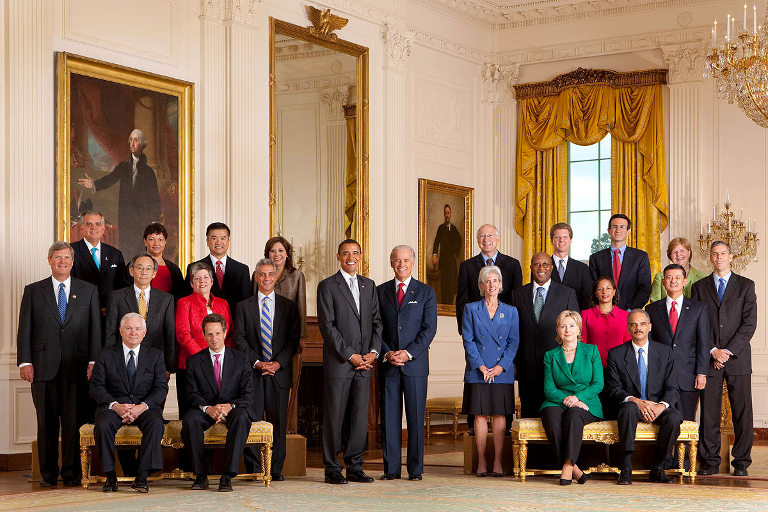After waging war comes building peace, right? Not in US politics. Not now. Now we have palace intrigue worthy of the Saud family. What we need is political sanity, a team of allies, not enemies, governing our nation.
Political contests in a democracy may be a battle of personalities, parties and policies, but once there is a victor, he or she needs to form a functioning Executive branch of government. In the current administration, only the sycophants seem to endure while more sober advisors get tossed under the bus.
Congress was once a deliberative body where wiser laws could be crafted through heated debate in the forge of respect for the Constitution and one another. Now centrists and aisle crossers are seen as defectors with crucial legislation stalled or killed.
From my experience designing and launching a globally recognized dialogue process as well as writing a breakthrough book about financial integrity, I have a suggestion for a road to sanity. At the moment, it is a thought experiment, but one that is legal and actually common place: consider the Cabinet as the deliberative as well as an advisory body that crafts wise policies.
The Cabinet, authorized to advise the President by Article II, Section 2 of the Constitution, is the most powerful unelected body in the National Government. More than 4 million people work in Federal Agencies. As the recent shut down demonstrated, the country can’t really function without them, their work and the trust we have in them. Filling the Cabinet positions is one of the most important first steps for a President.
What if we look not just for a dream Candidate but a dream Cabinet of men and women gathered around the next President.
What if we considered the field of excellent Democrats as a potential Cabinet. Imagine that each one of them pledged to serve the new President, if called and available, as Cabinet members? What if this field of competitors turned a team of allies to set together the best course for the nation? Let’s look at them as a team, not just as a quarterbacks or home-run hitters.
Recall the puzzle exercise in newspapers with two columns you are supposed to match up. Ball players and teams. Oscar winners and the film they won for. English words and Spanish translations. Now put the candidates (confirmed and maybes) and the Cabinet posts in two columns and match up people and positions for your dream Cabinet. Two will head the ticket, but disregard that for now. Here’s a recent roundup candidates. Match those declared, those on the fence and even those who dropped out (for now) with your dream team Cabinet.
To refresh your memory, here are the posts: Agriculture, Commerce, Defense, Education, Energy, Health and Human Services, Homeland Security, Housing and Urban Development, Interior, Labor, State, Transportation, Treasury, Veterans Affairs, Attorney General.
Try these picks on for size. Washington Governor, Jay Inslee, heads the Department of the Interior. Maybe Cory Booker for Health and Human Services. Andrew Yang – or Elizabeth Warren – could take the Labor Department seat. Better still, Elizabeth Warren would lead the Treasury. Castro has already proven himself on Housing and Urban Development under Obama. Imagine Kamala Harris as Attorney General. Pete Buttigieg, a veteran, could head Veteran’s Affairs. That leaves some positions open, some candidates unassigned, but we’re just getting to know them.
Now you try it.
To be clear: every one of these people is competing hard to be the Democrat Presidential nominee. Each of them has a choice of what they do next. The President would be free to look outside this group for his/her cabinet. It’s a free country, after all.
Looking at the field this way, though, paints a picture of a strong government, not just a strong leader. I see such a team the way we see football, baseball or soccer teams – high-functioning cooperators bent on winning. Game theorists show that in the end, cooperation edges out competition as the long-term winning strategy. Evolutionary biology explains that cells form symbiotic multi-cellular organisms – i.e. teamwork – to increase the chance of each organism surviving. Competitors in business form trade associations to represent their sector. The only question is: when does competition improve outcome, and when cooperation?
We may never have a parliamentary system. We may never correct for our “winner take all” regressive system that silences half the population. This thought experiment’s value comes from forming a selected, not elected, deliberative body inside the White House. Heck, create several cabinet seats called the Loyal Opposition so that Republican party moderates can be in these crucial conversations. Imagine being there, a fly on the wall as the Cabinet sits around the table, deliberating and finding a wise way forward. I see sanity. What do you see?






